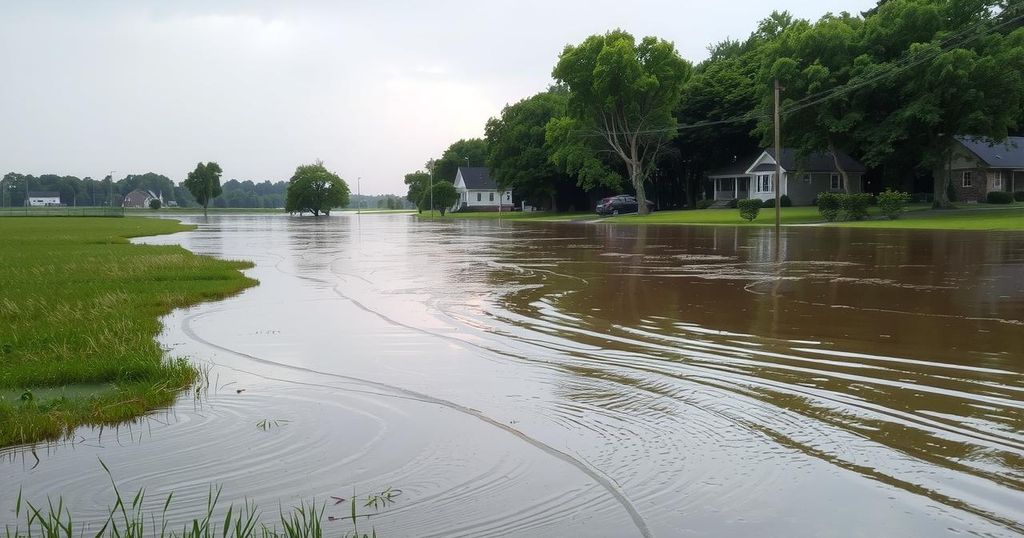In 2024, West and Central Africa faces severe flooding affecting four million people across fourteen countries, alongside drought in some areas. Increased rainfall has overwhelmed infrastructure, causing widespread displacement and threatening food security for the coming years. Immediate humanitarian aid and coordinated responses are critical to address this crisis.
In 2024, flooding in West and Central Africa has led to catastrophic losses, impacting four million people across fourteen nations. This surge in flooding is attributed to an increase in rainfall intensity and volume, causing significant runoff that overwhelmed water retention systems, particularly in areas like Maiduguri, Nigeria, and Mayo Danay, Cameroon. Concurrently, below-average rainfall in countries such as Burkina Faso and Ghana has resulted in severe drought conditions, threatening food security in these regions.
Since mid-July, major river basins in the region have experienced an upward trend in rainfall, with amounts significantly surpassing long-term averages. Current data indicates that conditions in the Niger and Senegal basins are exceeding standard deviations from average rainfall levels, particularly alarming in the Lake Chad basin, where trends surpass two standard deviations. Forecasts predict continued rainfall through October, suggesting a protracted risk of flooding and humanitarian issues in affected areas.
As of August 22, the Niger government reported 217 fatalities, 200 injuries, and over 350,000 individuals displaced due to flooding. In Cameroon, OCHA noted critical flood events in the Logone et Chari and Mayo Danay regions since August 19, exacerbating the humanitarian crisis. By early September, reports from UNFPA indicated severe weather had destroyed 1,700 homes, displacing 3,300 people.
The implications of the floods extend beyond immediate displacement, posing serious threats to food security for 2025. Substantial losses in agricultural productivity can be expected as flooding disrupts crop cycles and infrastructure necessary for food distribution.
The 2024 flooding in West and Central Africa highlights the catastrophic impact of extreme weather events, affecting millions. Increased rainfall has led to severe flooding, displacing countless individuals and threatening food security. As drought conditions persist in certain areas, the region faces a compounded humanitarian crisis that requires urgent attention and coordinated response measures.
Original Source: reliefweb.int






